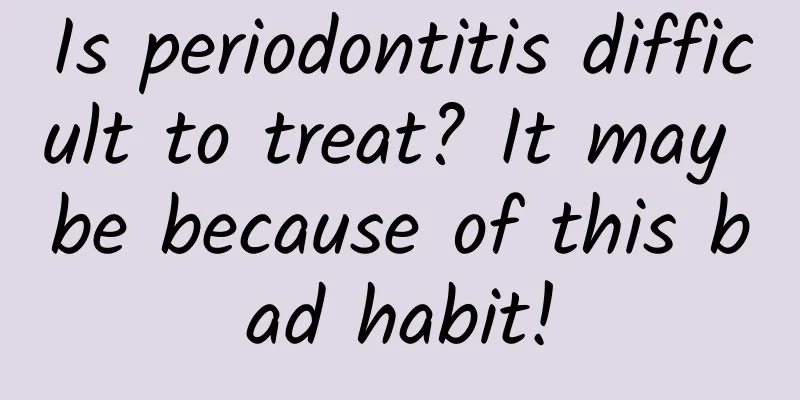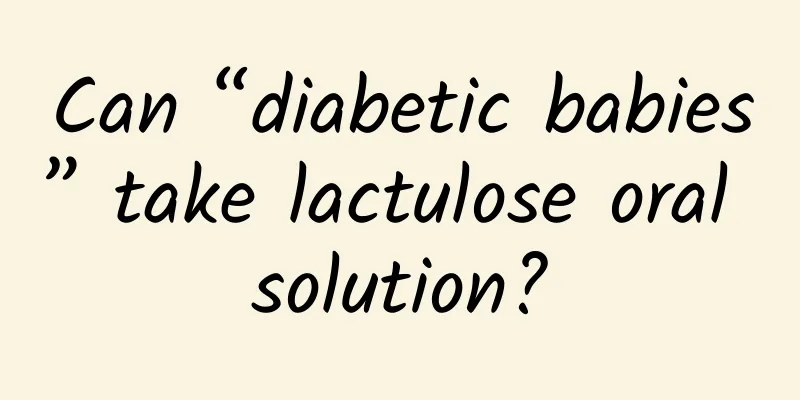Is periodontitis difficult to treat? It may be because of this bad habit!

|
There is a phenomenon in life that deserves attention, that is, some "senior" periodontitis patients are often "senior" smokers. This phenomenon makes people think deeply, is it possible that periodontitis and smoking are inseparable? To prevent and treat periodontitis, we must “capture the thief first” As we all know, periodontitis is another common oral disease besides tooth decay. Although there are many factors that affect the occurrence and development of periodontitis, the most critical factor is still the bacterial factor, and among the many oral bacteria, only one type of bacteria - periodontal pathogens are the real initiators. Therefore, the essence of periodontitis is an infectious disease, which determines that the ultimate prevention and treatment method of periodontitis is to control bacteria, or more precisely, to control dental plaque. Dental plaque is a collection of many types of oral bacteria, but it is not a random combination of these bacteria. Because of this, dental plaque is a highly organized structure in which the bacteria are tightly bound to each other and difficult to separate. Once dental plaque is formed, the bacteria in it become very tenacious when faced with drugs. Antibacterial drugs can at most be effective against bacteria on the periphery of dental plaque, but are often helpless against bacteria inside it. The indestructibility of dental plaque makes mechanical plaque removal the first choice for controlling the vitality of dental plaque [1]. Smoking is an accomplice to periodontal pathogens Although dental plaque is the most critical factor in the development of periodontitis, the influence of other factors cannot be ignored. These factors can add fuel to the fire and add fuel to the fire. Smoking is one of them. The main harm of smoking is that it can promote the momentum of periodontal pathogens. First, smoking affects the pathogenicity of periodontal pathogens. On the one hand, smoking helps periodontal pathogens take root and grow in the oral cavity. Although nicotine, a common harmful component in tobacco, inhibits the growth of certain periodontal pathogens in the short term, unfortunately, these bacteria will soon become resistant to nicotine and then grow rapidly under such conditions. Therefore, the idea that some people hope that smoking can kill bacteria can only be said to be naive; on the other hand, smoking also helps to enhance the pathogenicity of periodontal pathogens (the expression and function of virulence factors) [2]. Image source: pixabay.com Secondly, smoking can also affect the periodontal microecology by creating an anaerobic environment. Most periodontal pathogens are anaerobic, so this environment is more suitable for their growth. The anaerobic environment can change the microbial biomass and diversity below the gingival margin, especially the ratio of anaerobic to aerobic bacteria [2]. Under the influence of tobacco, even if the patient actively receives treatment, periodontal pathogens are difficult to be effectively curbed, and periodontitis naturally cannot be controlled. Quitting smoking is the right choice to stay away from periodontitis Since smoking promotes periodontal pathogens, it has a negative impact on the occurrence, development and treatment of periodontitis[3]. If smokers do not want to be harassed or entangled by periodontitis, they should actively quit smoking. In oral diagnosis and treatment practice, dentists should also inform patients of the harm of smoking and the benefits of quitting smoking. References [1] Meng Huanxin, ed. Periodontology (4th edition) [M]. Beijing: People's Medical Publishing House, 2012. [2] Zhang J, Yu J, Dou J, et al. The impact of smoking onsubgingival plaque and the development of periodontitis: a literature review[J]. Front Oral Health, 2021, 2: 751099. [3] Alexandridi F, Tsantila S, Pepelassi E. Smoking cessation and response to periodontal treatment[J]. Aust Dent J, 2018, 63(2): 140-149. Source: "Smoke-free Shanghai" WeChat official account |
<<: [Oral Health Science Series 6] Get rid of the trouble of dental plaque
>>: Hepatitis B mothers should not panic, this can keep your baby healthy!
Recommend
What is the cause of the itchy lump in the breast?
The breasts of adults should feel soft and not pa...
What are the specific reasons for a pregnant woman's heart to beat faster?
As a patient, if you don’t even know the cause of...
How much does a colposcopy cost?
A simple colposcopy costs about 500-600 yuan. Bef...
Can polycystic ovary be used for IVF?
In life, many infertile women are caused by polyc...
Is it normal for milk supply to decrease at 7 months?
In life, there are always some mothers who say th...
What can routine leucorrhea tests reveal?
Routine inspection and testing of leucorrhea has ...
Self-management of chronic heart failure
Author: Zheng Zhichang, deputy chief physician of...
How to clear breast lumps?
Women will find lumps in their breasts, especiall...
Know your heart clearly: some basic knowledge about cardiac ultrasound!
The incidence of cardiovascular diseases is incre...
Why do I always feel like my brain isn't working enough? Seven eating habits slow down brain aging
Have you ever forgotten a word when you pick up a...
What are the causes of frequent urination and urgency in girls?
Metabolism is a physiological characteristic of h...
What causes toothache during second pregnancy?
Many women experience toothache during pregnancy....
How to reverse the dilemma of ovarian dysfunction in assisted reproduction?
Author: Lv Yan, First Affiliated Hospital of Nava...









